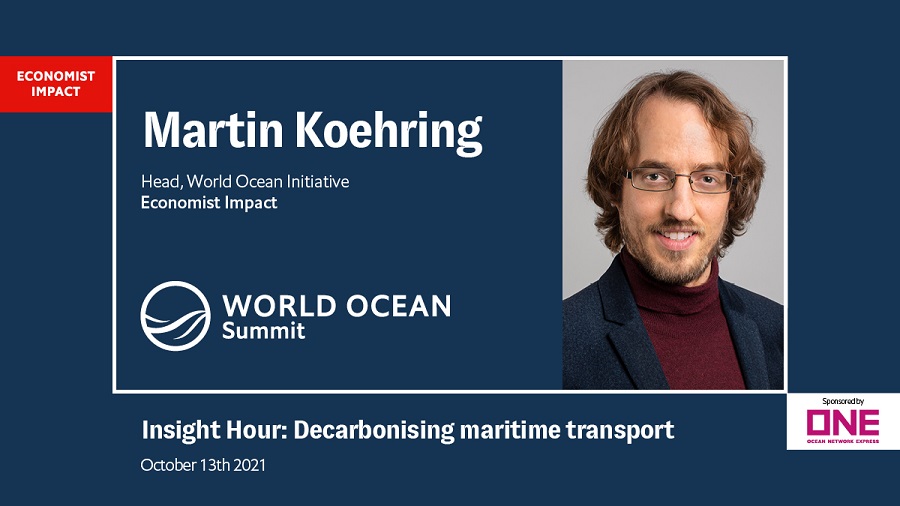On October 13th I moderated a World Ocean Summit Insight Hour that focused on the role of ship and cargo owners in adopting alternative fuels and alternative propulsion to reduce emissions. Speakers discussed the economics of alternative fuels, retrofitting ships and upgrading bunkering infrastructure, and how to achieve scale. They assessed the role played by financial and policy incentives and their impact on making progress towards decarbonisation.
From raw material to finished goods that reach consumers, 90% of all traded goods pass through the shipping supply chain. The shipping industry is integral to the growth of the global economy and trade. However, shipping is also a major contributor to climate change and air pollution. The sector is responsible for about 3% of global greenhouse gas (GHG) emissions and around 15% of the world’s major air pollutants.
The International Maritime Organisation (IMO) has set a goal to reduce shipping emissions by 40% by 2030, compared with 2008 levels. Shipping industry leaders have committed to finding a path to zero-carbon shipping—encouraging short-term action to achieve the long-term goal. Investment, regulation and technology will be fundamental drivers of maritime decarbonisation.
Speakers:
• Jeremy Nixon, chief executive, Ocean Network Express (ONE)
• Dirk Kronemeijer, chief executive and founder, GoodFuels
• Sarah Greenough, head of maritime sustainability and supply chain excellence, BHP
Key talking points:
• What are the key short-term steps that will help put the industry on the right decarbonisation trajectory?
• What is the role of policymakers and how can they move the transition forward?
• How are alternative fuel trials and deployments progressing, and what lessons have been learned?

